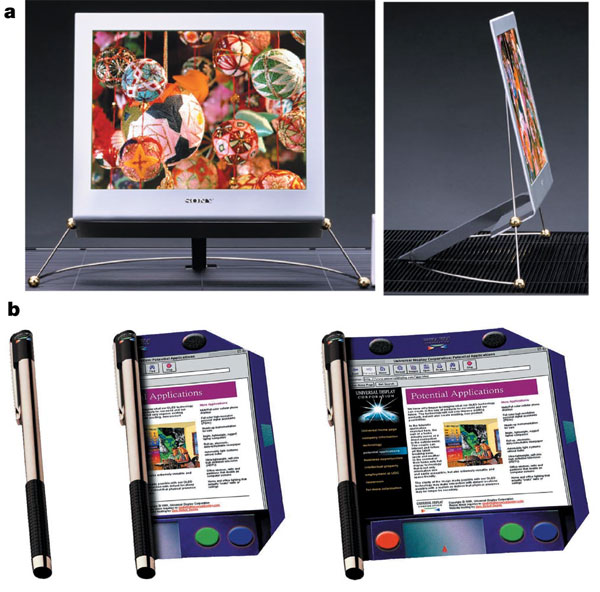Organic Electronics
Back during the Drexler/Smalley debates, Drexler argued that "The ultimate existence proof of the feasibility of a molecular assembler is life itself."
Smalley responded that life is "wet nano" - that many things that may be possible in molecular biology will prove impossible to duplicate with "dry" nanomaterials. And though I'd love for Drexler to ultimately win this debate, I believe (as I wrote here) that biological systems, either natural or artificial, will have physical limitations that would keep them from being all-purpose nanobots.
While I believe this is true, biological nanobots (biobots) might be able to do much more than refine petroleum.
Researchers from Stanford University have constructed an extremely small transistor from a pair of single-walled carbon nanotubes and organic molecules. A single-walled carbon nanotubes is a rolled-up sheet of carbon atoms.
The transistor is two nanometers wide and regulates electric current through a channel that is just one to three nanometers long. Today's computer chips sport millions of transistors that have 90-nanometer channels.TRNmag.com via KurzweilAI
To be a practical technology, we'll need a cheap way to assemble and organize billions of these tiny transistors. Organizing organic molecules is exactly the sort of thing that biobots might be good for.
 One of the reasons that organic materials haven't already displaced silicon in electronics is that electricity passes faster through silicon than carbon. This disadvantage would be more than compensated for by making transistors 30 times smaller - 90 nanometers v. 3 nanometers. It is also thought that these tiny transistors would be useful in ultra-low-power electronics.
One of the reasons that organic materials haven't already displaced silicon in electronics is that electricity passes faster through silicon than carbon. This disadvantage would be more than compensated for by making transistors 30 times smaller - 90 nanometers v. 3 nanometers. It is also thought that these tiny transistors would be useful in ultra-low-power electronics.
Last April the science journal Nature published a paper explaining how organic electronics could lead to ultrathin and flexible electronic devices.
Comments
...ultrathin and flexible electronic devices.
I imagine these will also be important for the wearable computers we can all look forward to here in the next couple of years.
Posted by: Phil Bowermaster![[TypeKey Profile Page]](http://www.blog.speculist.com/nav-commenters.gif) |
March 10, 2005 01:30 PM
|
March 10, 2005 01:30 PM